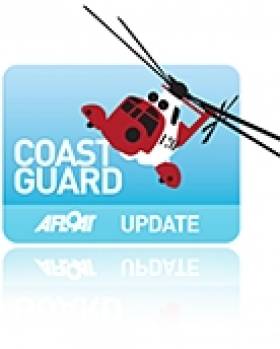Displaying items by tag: Royal Naval Air
Search Underway for Missing Ferry Passenger
The vessel had departed from Larne at 07.24 this morning and arrived at Cairnryan two hours later at a speed of approximately 18 knots. The master of the vessel has confirmed that one person is missing from the ships manifest.
The sea conditions are currently calm with a slight swell and good visibility with south westerly winds of 5 knots between the two locations.
A rescue helicopter, R 177, has been scrambled from the Royal Naval Air Station at Prestwick.
Clyde Coastguard are now organising a search throughout the area taking into account tidal drift and winds. Coastguard Rescue Teams have now been turned out ready to search the shores of Loch Ryan.
The Portpatrick, Stranraer and Larne RNLI lifeboats have all been requested to launch. A search has also begun from Cairnryan to Finnarts Bay. The Police Service of Northern Ireland has also been informed.
A mayday signal has now also been broadcast into the area by the Coastguard to alert passing shipping to the unfolding incident.
























































